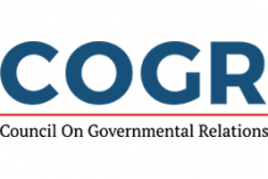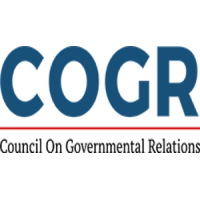COGR’s Compliance Supplement Comments Reiterate Familiar Concern

The adage may specifically state, “If at first you don’t succeed, try, try again.” Well, in the case of the Council on Governmental Relations (COGR) and its response to the Office of Management and Budget’s (OMB) Compliance Supplement, the adage may end something like “try, try again…and again…and again…and again…”
OMB issued the 2022 Compliance Supplement in May, providing information and suggested audit procedures to auditors when auditing recipients of financial assistance awards. (Information on the supplement can be found at ¶360 and ¶1171 of Thompson’s Single Audit Information Service Module.) OMB, as it does in the annual supplement, requests stakeholder comments on the document for consideration in the following year’s supplement.
COGR, an association of leading research universities, affiliated medical centers and independent research institutes, wrote in comments recently submitted on the supplement that OMB for the past six years “has been nonresponsive to an ongoing issue that we regularly have brought to your attention.” The issue involves the Part 3.C Cash Management compliance requirement, with COGR requesting that OMB clarify the supplement to recognize standard accounting and stewardship practices applicable to the timing for requesting reimbursement from federal agencies.
COGR argued that it is common practice that institutions of higher education (IHEs) request federal reimbursement after a transaction (e.g., payment to vendor) has been posted to their general ledger. However, some auditors have issued opinions that the reimbursement request can be made only after the vendor processes the payment made by the IHE. “This is problematic and inconsistent with standard business practices,” according to COGR, adding that although the IHE has paid the vendor, some auditors have interpreted the language in the supplement to mean that request for reimbursement must be made after the vendor deposits a payment. “We believe this is a misinterpretation of the Compliance Supplement and needs clarification,” the association said. “Addressing this issue in the Compliance Supplement will alleviate this longstanding, unresolved concern.”
Therefore, COGR urged OMB in future supplements to update audit objective 4 in the Cash Management section of Part 3 to state: “For grants and cooperative agreements that are funded [not “paid” as it currently states] on a reimbursement basis, supporting documentation shows that reimbursement requests submitted to the federal agency are premised on accepted accounting principles (e.g., the expense has been recognized in the institution’s general ledger) and appropriate stewardship of federal funds [not “that the cost for which reimbursement was requested were paid prior to the data of the reimbursement request” as it currently states].”
We’ll check to see next year if the sixth time will be the charm for COGR, or if they will reiterate their concerns in comments for a seventh time in 2023.
Join us for our following Thompson Grants events:
Federal Grants Forum For Institutions of Higher Education | Sept. 28-29, 2022 | Virtual Event
Advanced Federal Grants Forum | Oct. 25-27, 2022 | Phoenix, Ariz.



